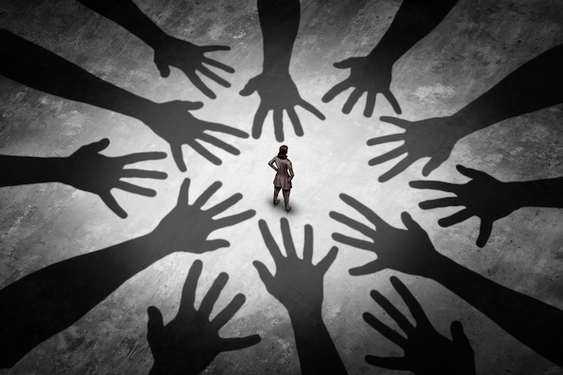On July 21, in an article titled “Don’t Send Your Kid to the Ivy League,” William Deresiewicz wrote about the many problems he’s seen with the elite network of universities. He criticizes the Ivy League and other selective institutions for their failure to create campuses of socioeconomic diversity and for perpetuating the class system in the United States. Long story short: he basically thinks that these universities cause their students to become “out-of-touch, entitled little [sh*ts].”
As a graduate of Barnard College, a women’s college affiliated with Columbia University, I agree with a lot of the points and criticisms Deresiewicz mentions in his article. Although, I don’t agree that I became an “entitled little sh*t,” I can say that without my other experiences in life, I probably was on my way to becoming one.
I wouldn’t trade in the education I received at Barnard and Columbia for any other one in the world. It worked for me, and it really did challenge and help me by opening up my mind. I will be forever grateful for the education I earned and to the students and professors that helped me along the way. But, Deresiewicz is correct in his view that elite institutions have many students with “toxic levels of fear, anxiety and depression.” I know this because I was one of them.
The fall semester of my junior year was probably one of the most stressful, anxiety-ridden, isolating semesters of my college career. When I went into the semester with six classes, an internship, membership in a sorority and a position as a writer for an on-campus magazine, I was satisfied. Although I wasn’t volunteering on the weekends and also writing for the campus newspaper, I thought I still was living (somewhat) up to the standards of “Super People.”
What are “Super People”? According to Deresiewicz, “Super People” (a term created by writer James Atlas) are students that have “a double major, a sport, a musical instrument, a couple of foreign languages, service work in distant corners of the globe and a few hobbies thrown in for good measure." “Super People” have mastered everything, "with a serene self-assurance that leaves adults and peers alike in awe."
Even though I was living up to those standards and had the satisfaction of knowing that my schedule and ability to manage all that I did was impressive, I was miserable that semester. I would never sleep on Wednesday nights, so that I could work on assignments. I would come home from a full day of classes or interning (often without a break) and spend hours upon hours studying and working on assignments. I never got to spend a lot of time with my friends, and I was often isolated in my room because I wanted to maintain or raise my precious, beloved GPA. And part of the reason why I did it all: I felt so much pressure around me.
When you take a walk through Barnard and Columbia’s campus, you will probably overhear a conversation that sounds like a competition for who is the most stressed and who has the most work. It goes like this:
Person A: I’m so tired. I didn’t get any sleep last night because I was working on my 20-page paper.
Person B: I know what you mean. I actually haven’t slept for two days because I had to turn in my first draft for my thesis. It was 40 pages.
Person A: Wow. I probably won’t sleep tonight again because I have two presentations in two days, but I’m interning all day tomorrow.
The pressure to be on top, or the definition of “Super People,” is so high at elite institutions such as Columbia. Although there was no authority figure pointing his or her finger at me, telling me to do it all and know it all, going to school with thousands of intelligent students who were interning, working an on-campus job, taking six classes and attending four club meetings a week was pressure enough. You feel like you’re not good enough, because you don’t have an internship for the semester. Or, you feel like you’re inadequate because you’re taking five classes instead of six. And when I didn’t fit that criteria some semesters, I often felt embarrassed and just wanted to avoid talking to certain peers. On top of that, there were times when I felt overwhelming waves of anxiety about not having accomplished something notable: I haven’t published a book; I never interned at a government office, and I’ve never been invited to MSNBC to give my perspective on education.
What I needed to realize earlier in college (and what I realized my senior year) was that I didn’t really need to do it all. I needed to learn how to not let the pressure get to me. I should have stopped comparing myself to other students. Yes—this classmate sitting next to be has interned for the UN and seems to know about the political situation in every country, but that doesn’t make me inferior. I should’ve ignored the “entitled little sh*t” that snickered at another student for making a mistake during discussion session. I also should’ve figured out how to balance school, work and my social life a lot earlier.
One thing that I learned very late in college was that balance is the key to actually enjoying a selective college or university. I figured out that I’m smart, and I can trust my intelligence with the material I learned in school. I didn’t really need to spend all day on a Saturday locked away in my room studying. When I finally made time for my friends, when I allowed myself to binge-watch Netflix or take a guilt-free nap from time to time, I was able to really appreciate Barnard and Columbia. Through a balance and by not giving into the pressure, my classmates were no longer my competitors or "people to impress;" they became my equals, people who I could really learn from. And, I enjoyed being around them.
Whether or not you go to an Ivy League school, a U.S. Weekly “top” school or a selective one, it’s best not to give into the pressure that will surround you. Allowing yourself to actually enjoy the education you receive and making time to engage with your peers socially is crucial to avoiding the “toxic” levels of unnecessary pressure, fear of failure, seclusion and anxiety at these institutions.




